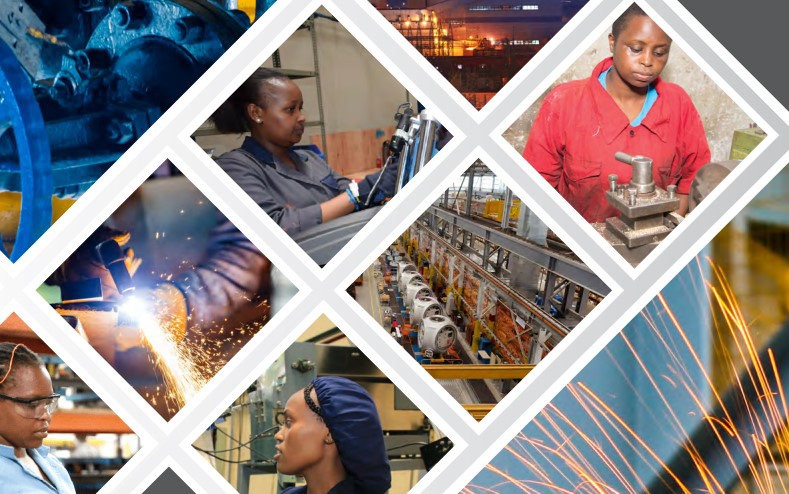 Pivotal moments in history have brought manufacturing to where it is today, and women have played an important part in the sector’s evolution over the years. Women such as Madame C.J. Walker, Rosie the Riveter, and Stephanie Kwolek have left a mark in manufacturing and continue to inspire women to venture into the sector today.
Pivotal moments in history have brought manufacturing to where it is today, and women have played an important part in the sector’s evolution over the years. Women such as Madame C.J. Walker, Rosie the Riveter, and Stephanie Kwolek have left a mark in manufacturing and continue to inspire women to venture into the sector today.
Let us take an example of the early 19th century, a period of tremendous change, whose impact we continue to feel. The Industrial and Agrarian revolutions came with new opportunities, changed the world’s view of work, and resulted in a period of great prosperity and rapid economic growth. It is also during this time that women’s roles in society quickly changed. Their roles at home were redefined, and opportunities opened for them to earn income in industries.
Here in Kenya, we have made tremendous strides toward driving inclusivity and diversity. However, several sectors of our economy are male-dominated. Women are still under-represented at the decision-making levels, such as boards and management, despite the efforts they have made in education and at the workplace. In the manufacturing sector, women are not explicitly excluded, but they remain both underrepresented and undervalued.
From the Women in Manufacturing Report developed by the Kenya Association of Manufacturers (KAM) in 2020, Kenya’s manufacturing companies are predominately male-owned and staffed across all sub-sectors. A quick glance at the manufacturing sector reveals that the number of young women in manufacturing is even lower. This worrying state of events is attributed to the lack of capital finance, appropriate business development services, and the absence of specialized professional and technical human resources, which are slowing the growth of women in manufacturing, and hampering their participation. The low participation of women in manufacturing is also a result of biases and stereotypes as well as gender-neutral laws and policies. Additionally, some women-owned businesses are stuck in the informal economy and are unable to formalize for sustainability.
We are currently in the middle of the Fourth Industrial Revolution. The COVID-19 pandemic has also disrupted the way of doing business. It is, therefore, critical for all of us to step up and take advantage of opportunities that have emerged, and in doing so, ensure women are involved and supported to thrive. This is because the involvement of women is a smart addition to leveraging the disruption brought by Industry 4.0 to spur innovation and heighten creativity.
But how do we continue to pave the way for women in the manufacturing industry? Building the next generation of young women calls for more than role models. They need active mentors, access to tools that shall drive their growth, and above all, an enabling business environment.
One of the ways of making space for young women to venture into manufacturing is through technology. The meteoric speed with which companies continue to develop and implement automation in their plants calls for more specialized skills, particularly in manufacturing. This provides an opportunity for young women to venture into the sector, by pursuing courses in Science, Technology, Engineering, and Mathematics (STEM) to equip them with skills that will enable them to meet industry needs now and in the future.
Another way is by increasing the number of women in leadership roles, either C-Suite or on boards. Research shows that gender diversity benefits a manufacturing organization through improved ability to innovate, higher return on equity, and increased profitability.
To enable women to venture into and thrive in manufacturing, the Women in Manufacturing report recommends the development of transformative models and standards that address workplace gender gaps. It also calls for supporting the formalization of informal women-owned SMEs in manufacturing and facilitating individual companies with toolkits that provide clear guidance and indicators to gender mainstreaming and diversity in manufacturing processes and management.
Finally, the report recommends the development of an incubation platform for women-owned manufacturing businesses to scale up and realize their potential.
Sustainable growth and human development can only be achieved if there is meaningful inclusivity. We urge various stakeholders to collaborate to build the next generation of young women, to drive growth.
Mary Ngechu is the Chair of the Kenya Association of Manufacturers (KAM) Women in Manufacturing (WIM) Programme and can be reached at info@kam.co.ke.




